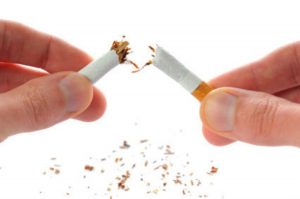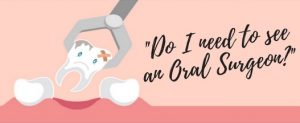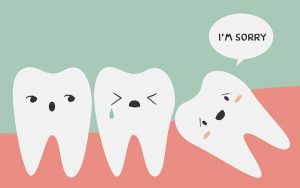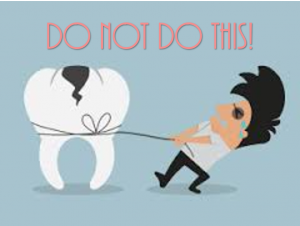Do you ever find yourself gnawing at your nails? Nail-biting is a very common and difficult to break habit which usually has its beginnings in childhood. It can leave your fingers and nail beds red and swollen. But if you think that your nails are the only ones getting roughed up by nail-biting you’d be mistaken – so are your teeth!
According to a study by the Academy of General Dentistry, those who bite their nails, clench their teeth, or chew on pencils are at much higher risk to develop bruxism (unintentional grinding of the teeth). Bruxism can lead to tooth sensitivity, tooth loss, receding gums, headaches, and general facial pain.
Those are some nasty sounding side effects from chewing on your nails. Most nail-biting is a sign of stress or anxiety and its something you should deal with.
So what steps can you take if you have a nail-biting habit?
There are several things you can do to ease up on nail-biting:
- Trim your nails shorter and/or get regular manicures – Trimming your nails shorter is an effective remedy. In so doing, they’ll be less tempting and more difficult to bite on. If you also get regular manicures, you’ll be less likely to ruin the investment you’ve made in your hands and fingernails!
- Find a different kind of stress reduction – Try meditation, deep breathing, practicing yoga, or doing something that will keep your hands occupied like squeezing a stress ball.
- Wear a bitter-tasting nail polish – When your nails taste awful, you won’t bite them! Clear or colored, it doesn’t matter. This is also a helpful technique for helping children get over the habit.
- Figure out what triggers your nail-biting – Sometimes it’s triggered by stress or anxiety and other times it can be a physical stressor, like having hang nails. Knowing what situations cause you to bit your nails will help you to avoid them and break the habit.
- Wear gloves or bandages on your fingers – If you’ve tried the steps above and they aren’t working, this technique can prove effective since your fingernails won’t be accessible to bit.
If you’re still having trouble with nail-biting after trying these self-helps steps, it’s best to consult your doctor, dermatologist, or Dr. Jennifer Wells. For some, it may also be a sign of a deeper psychological or emotional problem.
Whatever the cause, nail-biting is a habit you need to break for your physical and emotional well-being. If you have any questions about the effects it can have on your oral health, please don’t hesitate to ask Dr. Jennifer Wells during your next visit at First Impressions Family Dentistry.






